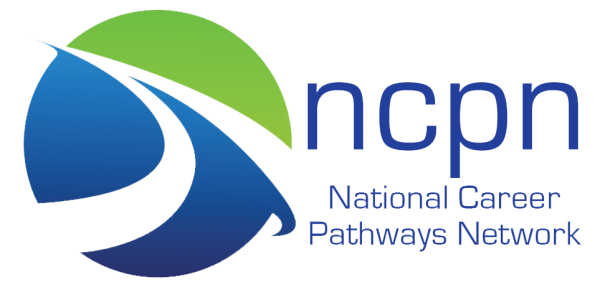
On November 4–5, NCPN hosted NCPN Connect 2021: A Virtual Conference. This robust virtual event included keynotes, live breakout sessions (recorded and available for six months), networking for attendees, and more. On-demand sessions will also be available for viewing for six months after the conference dates. Many thanks to all who contributed to this outstanding professional development opportunity!
See below for BREAKOUT SESSIONS and ON-DEMAND SESSIONS.
Opening Remarks
Keynotes
Dr. Kevin J. Fleming
Thursday, November 4, Noon EDT
 Dr. Kevin J. Fleming is an educator, national speaker, entrepreneur, and author. He has dedicated 20+ years to changing the dialog around eliminating the skills gap, helping students secure a competitive advantage while equipping their potential, and guiding students to identify and pursue their purpose on purpose.
Dr. Kevin J. Fleming is an educator, national speaker, entrepreneur, and author. He has dedicated 20+ years to changing the dialog around eliminating the skills gap, helping students secure a competitive advantage while equipping their potential, and guiding students to identify and pursue their purpose on purpose.
To support this dialog he has produced multiple, viral animation videos including Success in the New Economy, has written three books including the bestseller (Re)Defining the Goal, has elevated career and technical education (CTE) programs nationally via inspirational professional development, and has secured/managed over $75 million to advance economic and educational opportunity.
Dr. Fleming currently leads the Planning and Development unit as a Vice President at Norco College (part of Riverside Community College District, CA), having previously supported over 40 CTE programs as well as multiple state and federal grants as a dean of instruction.
Dr. Nicholas Brown
Friday, November 5, Noon EDT
 Dr. Nicholas Brown comes from a family of educators. Both of his parents were teachers and administrators in the Martin County School District, and Nick is a product of Martin County’s Public school system. In 2003 he completed a Bachelor of Science Degree in Business Administration from Florida Agricultural and Mechanical University (FAMU) and in 2005 graduated with honors from Nova Southeastern University with a master’s degree in business administration. Dr. Brown completed his Doctorate in Business Administration with a concentration in Marketing in 2016.
Dr. Nicholas Brown comes from a family of educators. Both of his parents were teachers and administrators in the Martin County School District, and Nick is a product of Martin County’s Public school system. In 2003 he completed a Bachelor of Science Degree in Business Administration from Florida Agricultural and Mechanical University (FAMU) and in 2005 graduated with honors from Nova Southeastern University with a master’s degree in business administration. Dr. Brown completed his Doctorate in Business Administration with a concentration in Marketing in 2016.
After graduating from FAMU, he started working with Indian River State College as a Financial Aid/Student Success Advisor. By 2006 he became IRSC’s Coordinator of Health Science Career Pathway Programs. He was responsible for marketing health science programs and established the Health Science Leadership Academy for high school juniors and seniors.
As IRSC’s Director of Articulation and Partnerships, Dr. Brown led the effort to make education more affordable to college-bound career pathway students by establishing high-school-to-college articulation agreements. During his tenure as Director of Articulation and Partnerships many students took advantage of these agreements, leading to consistent increases in dual enrollment AA and AS degree attainment. As Chair of the Research Coast Career Pathways Consortium (RCCPC) he focused on making education more accessible and seamless for all students. Today, Dr. Brown is a faculty member in the IRSC School of Business.
Breakouts
Be Inspired!
 Come hear from an award-winning teacher about what she does in her classroom to engage students. Hear about the great things she is doing to engage students and you will be inspired to try some of the ideas! Debbie Moore, Marketing Ed Teacher, Mountain Ridge High School and President of the National Marketing Education Association
Come hear from an award-winning teacher about what she does in her classroom to engage students. Hear about the great things she is doing to engage students and you will be inspired to try some of the ideas! Debbie Moore, Marketing Ed Teacher, Mountain Ridge High School and President of the National Marketing Education Association
Building a High-Quality Career Readiness Data Ecosystem
 In this session, Advance CTE will introduce a framework to help state leaders strengthen the quality and use of career-readiness data. Participants will learn the six core elements of a high-quality career-readiness data ecosystem and identify resources to conduct a statewide needs assessment and develop an action plan. Austin Estes, Manager of Data and Research, Advance CTE, Silver Spring, MD
In this session, Advance CTE will introduce a framework to help state leaders strengthen the quality and use of career-readiness data. Participants will learn the six core elements of a high-quality career-readiness data ecosystem and identify resources to conduct a statewide needs assessment and develop an action plan. Austin Estes, Manager of Data and Research, Advance CTE, Silver Spring, MD
Building Work Ethic in a Post-Pandemic World: 5 Strategies to Develop Essential Soft Skills
 COVID has forever changed the workplace. Millions of jobs are being lost as others have been radically transformed. While technical skills are still important, the biggest concern for employers is the lack of soft skills. Learn how to develop work ethic and improve outcomes for your students. Josh Davies, Chief Executive Officer, The Center for Workforce Development, Denver, CO
COVID has forever changed the workplace. Millions of jobs are being lost as others have been radically transformed. While technical skills are still important, the biggest concern for employers is the lack of soft skills. Learn how to develop work ethic and improve outcomes for your students. Josh Davies, Chief Executive Officer, The Center for Workforce Development, Denver, CO
Developing a Culture of Strategic Employer Engagement through the BILT Model
![]()
![]() Hear from college representatives at various stages of Business and Industry Leadership Team (BILT) implementation about how use of the model is strengthening employer/educator interaction and alignment of programs with industry needs. All panelists have participated in the BILT Academy, part of a National Science Foundation grant focused on mentoring educators to drive program innovation through co-leadership with employers. Moderator: Ann Beheler, PI, Pathways to Innovation, CORD; PI, National Convergence Technology Center, Collin College, Frisco, TX. Panelists: Antonio Delgado, Vice President, Innovation and Technology Partnerships, Miami Dade College, Miami, FL; Douglas Hamm, Dean, Business, Technology, and Hospitality, Lakeshore Technical College, Cleveland, OH; Mehran Mostajir, Engineering Systems Technology Program Director, Columbia State Community College, Columbia, TN
Hear from college representatives at various stages of Business and Industry Leadership Team (BILT) implementation about how use of the model is strengthening employer/educator interaction and alignment of programs with industry needs. All panelists have participated in the BILT Academy, part of a National Science Foundation grant focused on mentoring educators to drive program innovation through co-leadership with employers. Moderator: Ann Beheler, PI, Pathways to Innovation, CORD; PI, National Convergence Technology Center, Collin College, Frisco, TX. Panelists: Antonio Delgado, Vice President, Innovation and Technology Partnerships, Miami Dade College, Miami, FL; Douglas Hamm, Dean, Business, Technology, and Hospitality, Lakeshore Technical College, Cleveland, OH; Mehran Mostajir, Engineering Systems Technology Program Director, Columbia State Community College, Columbia, TN



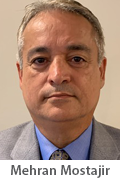
Essential Skills for an Essential Workforce
![]() A panel discussion with State Directors of Adult Education will focus on helping students acquire the essential skills and credentials that employers value most. These leaders will discuss statewide strategies for implementing essential skills models in their respective states. Discussion will include strategies for recruitment and retention, IET inclusion for workforce preparation, and statewide employer engagement. Reecie Stagnolia, President and CEO, Stagnolia Strategic Solutions, Lexington, KY; Mike King, State Director of Adult Education, State of South Carolina, Columbia, SC; Marilyn Pitzulo, Associate Chief Workforce Strategy, Indiana Department of Workforce Development, Indianapolis, IN
A panel discussion with State Directors of Adult Education will focus on helping students acquire the essential skills and credentials that employers value most. These leaders will discuss statewide strategies for implementing essential skills models in their respective states. Discussion will include strategies for recruitment and retention, IET inclusion for workforce preparation, and statewide employer engagement. Reecie Stagnolia, President and CEO, Stagnolia Strategic Solutions, Lexington, KY; Mike King, State Director of Adult Education, State of South Carolina, Columbia, SC; Marilyn Pitzulo, Associate Chief Workforce Strategy, Indiana Department of Workforce Development, Indianapolis, IN
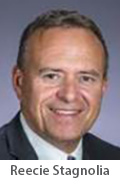
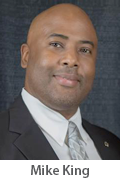
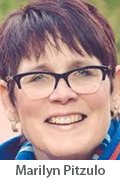
Evidence-Based Practices to Advance Career Pathways
![]()
![]() The What Works Clearinghouse™ (WWC) Practice Guide on Designing and Delivering Career Pathways at Community Colleges offers five evidence-based recommendations around how to design and deliver career pathways. This session features an overview of each recommendation, including examples of career pathway strategies and components and how to implement them; advice on how to overcome potential obstacles; and a summary of the research evidence that supports the recommendation. Sarah Costelloe, Principal Associate, Abt Associates, Rockville, MD; Eric Heiser, Provost, Central Ohio Technical College, Newark, OH; Michelle Van Noy, Director, Education and Employment Research Center, School of Management and Labor Relations, Rutgers University, Piscataway, NJ
The What Works Clearinghouse™ (WWC) Practice Guide on Designing and Delivering Career Pathways at Community Colleges offers five evidence-based recommendations around how to design and deliver career pathways. This session features an overview of each recommendation, including examples of career pathway strategies and components and how to implement them; advice on how to overcome potential obstacles; and a summary of the research evidence that supports the recommendation. Sarah Costelloe, Principal Associate, Abt Associates, Rockville, MD; Eric Heiser, Provost, Central Ohio Technical College, Newark, OH; Michelle Van Noy, Director, Education and Employment Research Center, School of Management and Labor Relations, Rutgers University, Piscataway, NJ

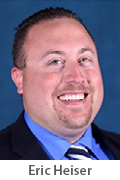

Examining Equity through Career Pathways
![]() Equity is at the forefront of institutional change and cannot be ignored when discussing Career Pathways. In this panel discussion, we will examine how equity plays a dynamic role in advancing the work of Career Pathways. You’ll hear from four college Presidents passionate about accelerating efforts aimed at student success in Career Pathways. Moderator: John Harper, Director of Diversity, Equity, and Inclusion, South Central College. Panelists: Michael A. Baston, President, Rockland Community College; Lee Lambert, Chancellor, PIMA Community College; Annette Parker, President, South Central College; Sharon Pierce, President, Minneapolis College
Equity is at the forefront of institutional change and cannot be ignored when discussing Career Pathways. In this panel discussion, we will examine how equity plays a dynamic role in advancing the work of Career Pathways. You’ll hear from four college Presidents passionate about accelerating efforts aimed at student success in Career Pathways. Moderator: John Harper, Director of Diversity, Equity, and Inclusion, South Central College. Panelists: Michael A. Baston, President, Rockland Community College; Lee Lambert, Chancellor, PIMA Community College; Annette Parker, President, South Central College; Sharon Pierce, President, Minneapolis College

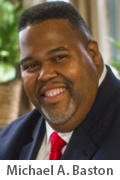
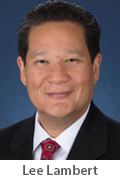
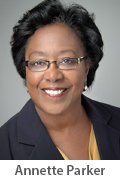
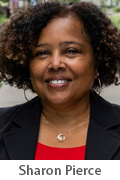
Facing the Future: Why Employers Need Multiskilled Technicians
![]() The global workplace is evolving right before our eyes. Advancements driven by technologies such as machine learning, artificial intelligence, the Internet of Things, and robotics are transforming existing industries and creating new ones at an unprecedented pace. In this session, panelists representing very large companies with heavy investments in the latest technology will discuss how rapid technological change is affecting the skill sets that employers are looking for in technicians, now and in the future. Moderator: Mike Lesiecki, Senior Consultant, CORD, Waco, TX. Panelists: Carlos Contreras, Senior Director of AI and Digital Readiness-Americas Region, Intel; Gail Norris, Director of SITRAIN – Digital Industry Academy for Digital Industry; David Vasko, Director of Advanced Technology, Rockwell Automation
The global workplace is evolving right before our eyes. Advancements driven by technologies such as machine learning, artificial intelligence, the Internet of Things, and robotics are transforming existing industries and creating new ones at an unprecedented pace. In this session, panelists representing very large companies with heavy investments in the latest technology will discuss how rapid technological change is affecting the skill sets that employers are looking for in technicians, now and in the future. Moderator: Mike Lesiecki, Senior Consultant, CORD, Waco, TX. Panelists: Carlos Contreras, Senior Director of AI and Digital Readiness-Americas Region, Intel; Gail Norris, Director of SITRAIN – Digital Industry Academy for Digital Industry; David Vasko, Director of Advanced Technology, Rockwell Automation
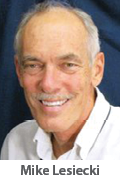

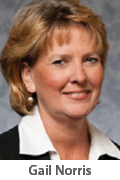

Increasing Opportunity Through CTE and Apprenticeship Alignment
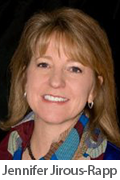

Learning from Europe: Shaping Career and Technical Education for the Future of Work
![]()
![]() The changing nature of work raises questions for the U.S. education system about worker preparation. This session looks at what the U.S. can learn from policy and practice changes made by six European countries after the Great Recession to prepare for the Future of Work. Michelle Van Noy, Research Faculty, Rutgers University, Highland Park, NJ;
Justin Vinton, PhD Student, School of Management and Labor Relations, Rutgers University, Piscataway, NJ
The changing nature of work raises questions for the U.S. education system about worker preparation. This session looks at what the U.S. can learn from policy and practice changes made by six European countries after the Great Recession to prepare for the Future of Work. Michelle Van Noy, Research Faculty, Rutgers University, Highland Park, NJ;
Justin Vinton, PhD Student, School of Management and Labor Relations, Rutgers University, Piscataway, NJ


OCTAE Introduces the CTE STEM Index Project
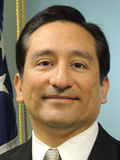 How much STEM (science, technology, engineering, and math) is in CTE programs? Join the U.S. Department of Education for this session to learn more about the CTE STEM Index initiative that looks to decompile S-T-E- and M, and bring attention to the unique STEM skills that are present in every occupation and industry sector. During this session, additional projects supported by the Office of Career, Technical, and Adult Education will be shared. Albert Palacios, Education Program Specialist, Office of Career, Technical, and Adult Education
How much STEM (science, technology, engineering, and math) is in CTE programs? Join the U.S. Department of Education for this session to learn more about the CTE STEM Index initiative that looks to decompile S-T-E- and M, and bring attention to the unique STEM skills that are present in every occupation and industry sector. During this session, additional projects supported by the Office of Career, Technical, and Adult Education will be shared. Albert Palacios, Education Program Specialist, Office of Career, Technical, and Adult Education
Regional Career Pathways in Wisconsin: Moving from Pilot Regions to State Expansion
 Learn how to equip students and their families with the tools necessary to make informed choices about postsecondary education and training as it leads to careers. Pathways Wisconsin has progressed from pilot region work to full expansion to increase the number of students that complete career pathways tied to high-skill, high-demand jobs. Jennifer Wagner, Regional Career Pathways State Coach, CESA 11/DPI, Saint Cloud, WI
Learn how to equip students and their families with the tools necessary to make informed choices about postsecondary education and training as it leads to careers. Pathways Wisconsin has progressed from pilot region work to full expansion to increase the number of students that complete career pathways tied to high-skill, high-demand jobs. Jennifer Wagner, Regional Career Pathways State Coach, CESA 11/DPI, Saint Cloud, WI
Rural Industrial Advanced Manufacturing Pathway 4.0
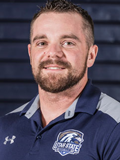 Utah State University Eastern is using industry partnerships to help build pathways for secondary and postsecondary learners. Students are given on-site practical experience to test, develop, and market new products within the additive manufacturing pathway in partnership with industry, secondary, university, and governmental partnerships. Zak Konakis, Pathway Coordinator, Utah State University, Price, UT
Utah State University Eastern is using industry partnerships to help build pathways for secondary and postsecondary learners. Students are given on-site practical experience to test, develop, and market new products within the additive manufacturing pathway in partnership with industry, secondary, university, and governmental partnerships. Zak Konakis, Pathway Coordinator, Utah State University, Price, UT
Skill UP Mississippi—Pathways to Employment: Earning Credentials of Value at Every Level

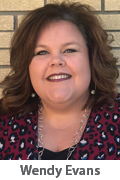
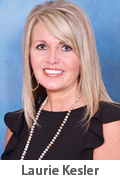
On-Demand Sessions
This is an interactive presentation that includes multi-media resources, district readiness self-evaluation tools, and Q&A that will focus on the CEN P-20 Rural System model. Featuring student highlights from CEN network districts, research-based strategies will be shared to help rural districts address the loss of community human capital and determine ways to break generational poverty cycles. Rachael McClain, Chief of Staff, Collegiate Edu-Nation, Roscoe, TX; Kim Alexander, CEO, Collegiate Edu-Nation, Roscoe, TX
Addressing the Rural Dilemma: Creating a P-20 System Model for Postsecondary Outcomes
When students have opportunities, success happens. Come explore best practices for embedding career advising at every level to help students transition from elementary to postsecondary opportunities. Viewers will learn practical, engaging strategies on how to build real-world experiences that bridge academic performance with the road to college and career readiness. Petra Woodard, Executive Director of Academic Counseling and Alternative Education, Oklahoma State Department of Education, Oklahoma City, OK; Chelsea Hunt, Executive Director of Work-Based Learning and Industry Engagement, Oklahoma State Department of Education, Oklahoma City, OK
Building Blocks to Real-World Connections
The NSF project Preparing Technicians for the Future of Work has identified essential cross-disciplinary topics in data knowledge and analysis, advanced digital literacy, and business knowledge and processes for integration into all STEM technician programs, regardless of industry sector. Viewers will learn how to include these topics in existing courses. Ann-Claire Anderson, VP, Special Projects, Center for Occupational Research and Development, Waco, TX
Creating Versatilist Technicians by Teaching the Cross-Disciplinary STEM Core
Most schools and communities cannot articulate the knowledge and skills that make a youth ready for life beyond high school. Session viewers will learn about a structured process for creating a Profile of a Career and Life Ready Graduate and practical steps for aligning curriculum and gaining community buy-in. Hans Meeder, President, National Center for College and Career Transitions (NC3T), Columbia, MD
Creating Your School’s Profile of a Graduate
From the expansion of opportunities in career and technical education for students, to working within the constraints and limitations of class size and working to find staff in certain content areas, attendees will examine the benefits of operating regional career and technical education programs. Terry Stroh, Regional Director, Northern Kane County Regional Vocational System, Burlington, IL; Esther Mongan, Assistant Superintendent, Central District 301, Burlington, IL; Lindsay Sharp, Executive Director of Curriculum 6-12, Central District 301 Burlington, IL
Developing Regional Career and Technical Education Programs
Our flexible engineering technology major will accommodate diverse industry needs, include a greater manufacturing component, enlighten students to industry careers, and develop their business and career readiness skills. We will discuss our strategies for leading students to success in technician education programs while preparing them for the future of industry. Christine Delahanty, Area Coordinator of Science and Engineering, Bucks County Community College, Newtown, PA; Susan Herring, Executive Director of Center for Workforce Development, Bucks County Community College, Newtown, PA
Enhancing Workforce Readiness of Students in Technician Education Programs
Tour the new Personal and Workplace Success Skills Library, a curated collection of high-quality resources for teaching and assessing personal and workplace success skills in workforce development, adult education, and postsecondary education. Personal and workplace success skills, like critical thinking, teamwork, self-management, and emotional intelligence are key to career pathway success. Sandy Goodman, Director, National College Transition Network at World Education, Inc., Boston, MA; Dani Scherer, Curriculum and Professional Development Specialist, National College Transition Network at World Education, Inc., Boston, MA
Explore the New Personal and Workplace Success Skills Library
Using a sampling of jobs and careers at the Federal Reserve, we will highlight career opportunities as well as the skills, training, and education needed to enter the workforce. Learn about free career exploration resources designed to prepare students for their futures – interactives, infographic posters, project-based lessons, and guided learning activities. Jackie Morgan, Outreach Senior Advisor, Federal Reserve Bank of Atlanta | Nashville Branch, Nashville, TN; Claire Loup, Outreach Senior Advisor, Federal Reserve Bank of Atlanta/New Orleans Branch, New Orleans, LA
Exploring Career Opportunities: Plotting a Course for Success
Learn how fast-paced skills training can revolutionize the future of work. Representatives from XPRIZE Rapid Reskilling will present preliminary skills training data themes, best practices, and field test outcomes and will highlight pandemic-related labor trends and the prize’s focus on equity and inclusion to bring underserved communities to the table to create reskilling technology. Monique Golden, Social Science Lead, XPRIZE, Culver City, CA; Monica Groves, Program Lead, XPRIZE, Culver City, CA; Brianne Ward, Community Lead, XPRIZE, Culver City, CA
Fast-Paced Skills Training: XPRIZE Rapid Reskilling and the Future of Work
While serving a relatively high proportion of students of color, career pathways in Oregon has eliminated the opportunity/achievement gap among participants. State leaders will discuss implementation that creates results as well as how Oregon pioneered a career pathways data system capable of measuring completion rates and promoting data-informed decision-making. Daniel Adams, Oregon Statewide Director of Career Pathways, Chemeketa Community College/Oregon Office of Community Colleges and Workforce Development, Washington, DC; Kristen Kulongoski, Interim Manager of Adult Basic Skills and Career Pathways, Mt. Hood Community College/WorkSource Portland Metro Gresham, Gresham, OR; Kelly Zinck, Education Team Research Analyst, Oregon Office of Community Colleges and Workforce Development, Salem, OR
How Oregon Career Pathways Eliminated the Opportunity/Achievement Gap
The pandemic has had far-reaching effects on colleges and students. This session will discuss research on how the pandemic has influenced students’ decision making about IT programs and careers, and how programs have sought to respond to support students and guide them in this ever-growing and changing field. Michelle Van Noy, Research Faculty, Rutgers, Highland Park, NJ; Danette Coughlan, Department Chair, School of Information Technology, Ivy Tech Community College, Lawrenceburg, IN
The Impact of the Pandemic on IT Pathways
New technologies and business processes drive fast-paced change in the workplace. During this session, Hans Meeder, former official at the U.S. Department of Education, will share information about key technologies and innovations that are driving change and explain how they will demand change in our career pathway programs. Hans Meeder, President, National Center for College and Career Transitions (NC3T), Columbia, MD
Innovations in the Workplace and How They Will Impact Career Pathways
As we’re dealing with the COVID-19 pandemic, searching for a new career is even more complex than ever before. When the pandemic began, several jobs disappeared and a great deal of information is pointing to the fact that some of the lost jobs won’t be returning. Even more are in danger from automation and AI, or if we experience another pandemic or something similar from a global perspective. Data about jobs that create pathways for those who may lack degrees but possess marketable skills, called “Gateway Jobs,” is emerging and beneficial for veterans seeking career paths. Learn what jobs are most in danger, what jobs create pathways to new careers, and how to incorporate job vulnerability and gateway job data along with psychological science to help guide job seekers into new, promising careers. Dan Hawthorne, Director of I/O Psychology, PAIRIN, Denver, CO
Job Vulnerability, Gateway Jobs, and Decision Process Management: Guiding Job Seekers
The ITSS 2020 project has worked with 200+ national employers to clarify standards for the increasing need for employability skills for six of the most critical IT jobs. Viewers will learn strategies for strengthening curriculum for high school/college pathways by incorporating these skills to better prepare students for the workforce. Ann Beheler, Principal Investigator, IT Skill Standards 2020 and Beyond, Frisco, TX; Christina Titus, Program Director, Collin College/ITSS 2020, Frisco, TX
Leverage Employer-Defined Employability Skills to Strengthen Your IT Program
National Science Foundation ATE Grant Funding and Mentoring Opportunities
The National Science Foundation Advanced Technological Education program has grant funding opportunities available to support technical program development, professional development, career pathways, curriculum development, outreach activities and more in support of technician education. The current NSF-ATE solicitation and some helpful resources and mentoring opportunities will be reviewed. Greg Kepner, Co-Principal Investigator, Micro Nano Technology Education Center, Ottumwa, IA
National Science Foundation ATE Grant Funding and Mentoring Opportunities
Utilizing a family engagement framework, participants will be able to describe positive outcomes for students resulting from collaborative partnerships between families, schools, and community partners. In applying the framework, participants will also be able to foster such partnerships within middle school career exploration programming while implementing strategies, considerations, and resources. Patrick Cunningham, Graduate Research Associate for The Ohio Statewide Family Engagement Center, The Ohio State University, Center on Education and Training for Employment, Columbus, OH; Keli Bussell, Training and Development Specialist, The Ohio State University, Center on Education and Training for Employment, Columbus, OH; Traci Lepicki, Associate Director of Operations and Strategic Initiatives, Program Director of Curriculum and Training, The Ohio State University, Center on Education and Training for Employment, Columbus, OH
Partnering with Families in Middle School Career Exploration
Building, cultivating, and maintaining relationships is necessary to create meaningful pathways for students, whether that is to employment, higher education, or both. This presentation will review key strategies for what it takes to build and maintain partnerships to benefit students and in turn, our communities. Courtney Gaynor, K12 Partnership Coordinator, Moraine Park Technical College, Fond du Lac, WI
Partnerships: Persistence, Patience, and Mutual Understanding
What’s new and changing? Everything in the economy! This fast-paced and informative session will analyze key economic data using visual snapshots of current events and data – jobs, unemployment, wages, consumer confidence — and explore how these relate to the lives of students. Engaging and classroom-ready lessons, activities, and resources will be shared. Jackie Morgan, Outreach Senior Advisor, Federal Reserve Bank of Atlanta | Nashville Branch, Nashville, TN; Dr. Maria Edlin King, Director, Tennessee Council for Economic and Free Enterprise Education at MTSU, Murfreesboro, TN
A Picture Is Worth a Thousand Words: A Snapshot of the Economy
Have you ever asked a student what they want to be when they grow up? What kind of answers did you receive? Oh, the professional athlete, right? We will take a deep dive into a career development process that engages students and leads to student empowerment. Carla Kersey, Career Counselor Service Provider/ Project Development Coordinator, Kentucky Educational Development Corporation, Lexington, KY; Jennie Sloan, Project Development Coordinator, Kentucky Educational Development Corporation, Lexington, KY
Professional Athlete? Yes—That is what I want to be when I grow up!
Universal design for learning (UDL) training for faculty and staff has increased student success at Onondaga Community College (OCC) among students with disabilities. OCC will share how UDL creates consistency in coursework, integrates adaptive technologies, and removes learning barriers for all students. Laura Gleneck, Division Director, Employment, National Disability Institute, Washington, DC; Nancy Carr, Director of Office of Accessibility Resources, Onondaga Community College, Syracuse, NY; Karen Fabrezio, Dean, Health and Community Services, Onondaga Community College, Syracuse, NY
The Promise of Universal Design and Its Application to Inclusive Work-Based Learning
The National CTC has developed strategies for leveraging its “BILT model,” which formalizes co-leadership between business and educators to align curriculum with workforce needs – to support high school to community college (and beyond) pathways. Viewers will learn how to quickly implement the “BILT model” with their own programs. Ann Beheler, Principal Investigator, National Convergence Technology Center (Collin College), Frisco, TX; Mark Dempsey, Assistant Director, National Convergence Technology Center (Collin College), Frisco, TX
Supporting High School to Community College Pathways with Employer Engagement
Do you want to spark passion and career-readiness skills in EVERY student and provide opportunities for success beyond graduation? Join Team Leeton’s staff and student leadership team members and state and local professional development leaders as they discuss their road to preparing all students through their Systematic Framework for Success-Ready Students. During this presentation, participants will learn the process taken by this rural school in Missouri to engage students in career pathways, the implementation of employability skills in all content-area classrooms, and provide opportunities for students to engage in work-study, job-shadowing, and internship opportunities through partnerships with local businesses and employers. Participants will also receive resources and ideas for immediate implementation in their school districts. Jennifer Corson, Principal, Leeton R-X School District, Leeton, MO; Jessica Shaffer, Career Services Coordinator, Leeton R-X School District, Leeton, MO; Jay Webster, Central RPDC, University of Central Missouri, Warrensburg, MO; Roberta Carson, Regions 2 and 9 Director, DESE Missouri Career Pathways, Jefferson City, MO; Hailey Bingaman, Student Leader, Leeton R-X School District, Leeton, MO
Systematic Framework for Success-Ready Students
In this session, we will explore Virginia’s IET Blueprint, a freely available resource for planning, implementing, and evaluating IETs. We will engage with our IET professional learning community to discuss how they partner to develop a repository of planning tools and expertise that expands partnerships and strengthens IET programming. Viewers will gain access to an IET toolbox and an adaptable model to build IET knowledge through practitioner collaboration. Kate Rolander, Workforce Education Specialist, Virginia Adult Learning Resource Center at Virginia Commonwealth University, Richmond, VA
Virginia’s IET Blueprint: Strengthening IETs Through a Virtual Professional Learning Community
So you’ve started a pathway model. That’s great! Now what? In this session, you’ll hear about a wall-to-wall, award-winning pathway model that is in its sixth year. Presenters will share successes and challenges, and a current project to take pathways into the future of learning/teaching. Kathy Funston, Director of Strategic Partnerships and Pathways, Burnsville Public School District, Burnsville, MN; Dave Helke, Principal, Burnsville High School, Burnsville Public Schools, Burnsville, MN

